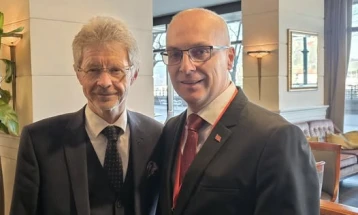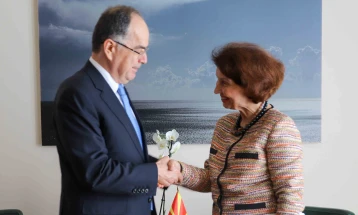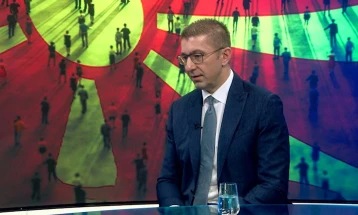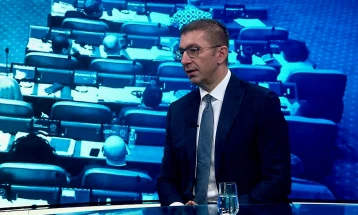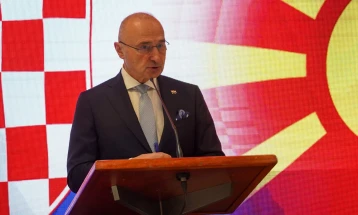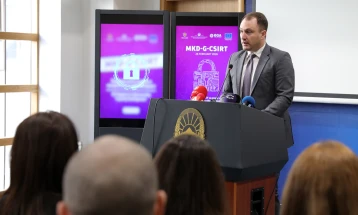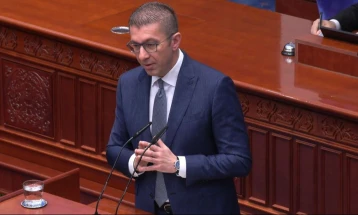Health Ministry: Anti-pollution measures remain in place amid worsening air quality
- Anti-pollution measures in Skopje remain in place in days when fine particulate matter peaks, the Ministry of Health said on Thursday. The measures were adopted at the end of 2023, after the PM10 particle alert threshold at two measuring stations in Skopje was exceeded.
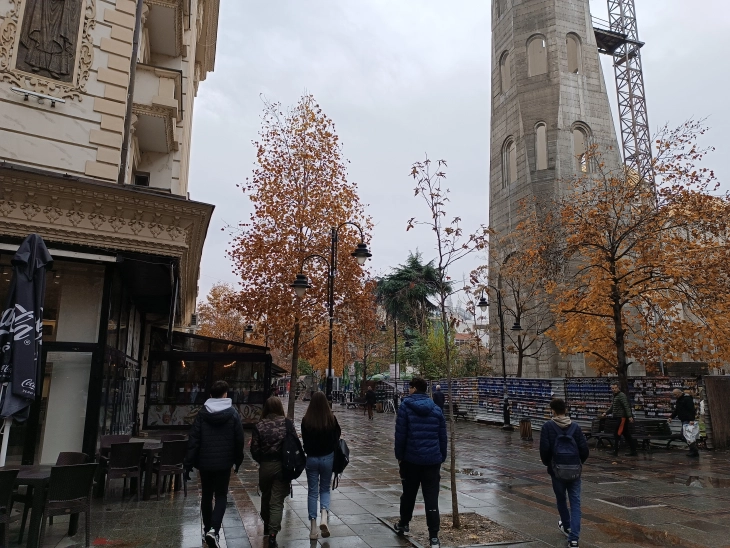
Skopje, 4 January 2024 (MIA) - Anti-pollution measures in Skopje remain in place in days when fine particulate matter peaks, the Ministry of Health said on Thursday. The measures were adopted at the end of 2023, after the PM10 particle alert threshold at two measuring stations in Skopje was exceeded.
Skopje on Thursday ranks 19th in air pollution according to IQAir (World Air Quality Index Platform).
According to the PM particles (particle concentration in the air) measured at 11 am local time, staying outdoors is not recommended for persons with sensitive health.
President of the Association of Private General Practitioners, Lidija Cholakova Dervishova, told MIA that polluted air affects respiratory diseases, causes allergic reactions of the respiratory system, coughs, and headaches, depending on the territory, PM particles, and work conditions.

"For those with asthma, chronic obstructive pulmonary disease, and other chronic diseases the condition continues to worsen. People should be careful and go out only if necessary. The elderly and those with health issues should be especially careful," Cholakova Dervishova said.
According to 2017 conclusions of the Government, in such conditions, the Ministry of Environment and Physical Planning and the Ministry of Health are obliged to recommend to all legal entities (employers) to release pregnant women, people over 60 years of age, as well as people with chronic asthma, previous myocardial infarction or stroke, regardless of age, with the recommendation of a family doctor.
They recommend to all legal entities (employers) to reorganize the working hours and the persons working outdoors to work from 11:00 a.m. till 5:00 p.m.
They recommend not to organize sports competitions and other cultural events outdoors. They provide conditions for increased activities of emergency medical services, home visits and patronage services.
Speaking at a press conference on Wednesday, Minister of Environment and Physical Planning Kaja Shukova said analyses show that 45 percent of the pollution comes from households.
"Also including public institutions not using environment-friendly heating systems. This is where we come in. We will replace systems in about 70 institutions in the coming two years. Processes are not developing as fast as they should, but this does not mean that we will stop with these 70 institutions," Shukova noted.
She added the current measures against air pollution are short-term, and the replacement of existing heating systems with environment-friendly ones is a long-term measure, a process that was launched 4-5 years ago, with a Government decision to allocate funds. Therefore, such systems are already operational in larger health institutions, and that municipalities that will submit a request and a projects with examples will also receive help, as was done with the hospital in Gevgelija.

"We encourage municipalities to implement projects in public facilities in line with their capacities, although some are already supporting households in the procurement of inverters and replacement of heating systems. Nevertheless, each and every one of us should contribute to the reduction of air pollution, for example by burning dry instead of wet wood, not adding materials such as parquet, plastic, rubber etc," the Minister stressed.
A process of mapping potential polluters has been ongoing for a year, she added, with information provided from municipalities. In the past three years, they have been helped by cadastres in identifying polluters, offering financial help for the preparation of air plans.
"Therefore, the state is doing what it can to help municipalities identify potential polluters, whereas local authorities should implement short-term and long-term measures against air pollution adopted by their local councils," noted Shukova.
She added that USJE cement plant and Makstil steel plant "have proven to be responsible companies" by observing the recommendation issued to larger industrial capacities to reduce their production during the winter months, when pollution levels reach their peak.

"USJE turned off one furnace on January 1, and is now working with almost half a production, and so did Makstil. Furnace repairs are done during the winter months. Previously, repairs were done during the summer as it is probably more economic and easier, but in order to be socially responsible and help reduce air pollution, I have information that these two companies are working with reduced capacity. We encourage everyone else to reduce production as much as possible, especially during days with peaks like these," Shukova said. ssh/nn/
Photo: MIA archive
